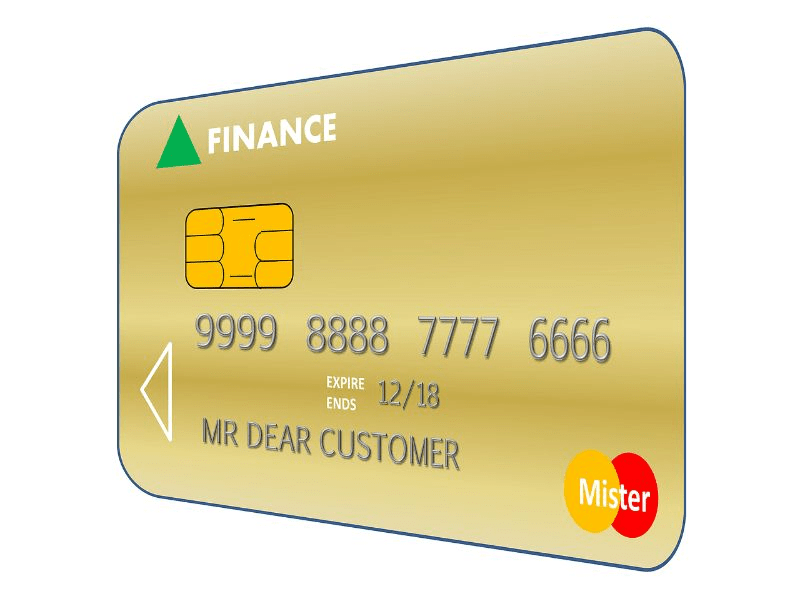If you apply for a credit card do you have to accept it? Some of us have found ourselves asking this question. Today, we get a comprehensive answer to this pertinent question.
Sometimes, you apply for a credit card and get approved but have a change of heart. Also, you may have accidentally applied for a credit card, and it got approved. This leaves many people with this question – if you apply for a credit card do you have to accept it?
No, you don’t have to! If your financial goals change or you aren’t sure about accepting the card, you don’t have to worry much. You are not obligated to accept a card that you feel doesn’t fit your needs.
What we mean is it is possible to cancel a credit card that is still awaiting approval or even after it has already been approved. However, there are some risks associated with canceling a newly approved credit card that you should consider first.
This article explores all that and more. We’ll even look at how you can cancel an approved credit card and ways you can avoid dire consequences.
How to Cancel Credit Card Application

If you have applied for a credit card but are having second thoughts before it has been approved, you can contact the card issuer directly to cancel the application. Many credit card companies have a phone number to call on the application page or provide contact information in the confirmation email after applying.
When you call, let them know you would like to cancel the credit card application you recently submitted. They will verify your identity and should be able to cancel the application easily as long as it is still pending approval. This will prevent the card from being approved and sent out.
Canceling at this stage has no impact on your credit score. The credit card company may not have hard-checked your credit report yet or reported the new account. Therefore, there is no credit history to reverse by canceling now.
Risks of Cancelling an Approved Credit Card
Once a credit card has already been approved, canceling it can have some risks. It is still possible, but in most cases, you’ll have to bear some consequences. Let’s look at two scenarios on how the cancellation affects your credit history.
When You Have a Great Credit History
If you already have a very good credit score of 740 or higher, canceling a new credit card soon after approval will likely have little impact on your credit. The hard inquiry from the application will remain on your report for two years, but as long as the account was not open that long, it will have minimal effects on your high credit score.
Usually, canceling your just-approved card impacts the “new credit” section of your FICO credit score. This accounts for around 10% of your credit score. In most cases, the cancellation doesn’t affect the entire 10%.
A tip here: With your great credit score, do not reapply for another card immediately after the cancellation. Wait for at least a month and see how your score is affected. If there is no big change, feel free to apply for a card that suits your needs.
See Related: Can you Pay a Mortgage with a Credit Card?
When You Have an Average Credit History
If your credit score is in the average range (620-739), canceling a new account can have a larger negative impact. Here are some of the potential downsides:
- The hard inquiry from the application will remain on your report for two years and can slightly lower your score during that time.
- The canceled account can stay on your report for up to 7 years, although without negative marks. Still, this can make your history appear less stable.
- You lose the potential positive effects the account could have by being managed responsibly over time.
- Your credit utilization ratio may increase if you lose the available credit limit from this account.
- Your credit history length will not improve as quickly compared to keeping the new account open.
So, when you have an average credit score, it’s usually best to keep a new credit card open for at least 12 months to avoid these negative implications.
How to Cancel an Already Approved Credit Card
If you determine it is in your best interest to cancel a newly approved credit card account, here is the process to follow:
1. Review Your Card’s Application Status
Check the application status online or call the issuer to confirm the account has been officially approved and is not still pending. If it is not approved yet, canceling becomes easy. Calling the issuer or emailing them is enough. However, if the card is already approved, more steps are required to cancel the card.
You should note that with the current technology, card applications go through very fast. Your card might be approved within a matter of minutes.
2. Contact Your Issuer
You can cancel by phone or in writing. Review your credit card agreement for the cancellation policy and follow any instructions provided. Many issuers have dedicated phone numbers for credit card servicing where you can request to close the account.
When contacting the Issurer, ensure you have all the necessary details. For instance, have your card application number and your name.
3. Request for Confirmation
Requesting for cancelation is not enough. After the cancelation, ensure that you get a confirmation either through email or a letter. This document is crucial in case the card still shows as active in your credit report later.
4. Monitor Your Credit Report
Keep an eye on your credit reports after cancelation to ensure the account is properly marked as closed, not active. The closed account may remain for up to 10 years but should show a $0 balance and no late payments.
Dispute any errors immediately by contacting your card issuer. You can also get a copy of your credit report from any of the three main credit checkers (Equifax, TransUnion, and Experian) for free every 4 months.
5. Shred the Cancelled Card
When the cancellation process is through, it’s time to discard the card. You can shred it, together with the application documents, and discard it safely. However, ensure you keep the cancellation confirmation documents safe. You might need them later.
See Related: How to Pay Off Credit Card Debt?
How to Decide Whether or Not to Accept a Credit Card

How do you decide whether to accept or decline an approved credit card? Well, since there are risks to canceling a new credit card, you should carefully decide whether or not to accept the account. The issuer does not ask you whether you accept it or not, but you have the option to decide for yourself.
Here are some factors to consider:
Assess Your Financial Situation
Determine whether taking on a new credit line is financially responsible at the moment based on your current income, expenses, and existing debts. Do you really need a credit card?
Avoid taking on more credit than you can comfortably manage. This only messes up your future finances.
Read the Fine Print
Review the credit card agreement details thoroughly before accepting the card. This ensures you understand and can meet all requirements, like minimal spending for bonuses.
You should note that every issuer has different terms and conditions. These include the annual percentage rates, penalty fees, benefits like cashback, and annual fees. Have all these facts at your fingertips.
Evaluate Benefits
Compare the rewards program, promotional offers, rates, and fees to your needs. Make sure the card provides enough value.
Also, ensure that the benefits match your spending habits. For instance, don’t pick a card that offers attractive travel perks if you don’t like traveling. If shopping is your thing, look for a card that capitalizes on shopping benefits and offers.
Explore Other Offers
Shop around to see if a different credit card would better suit your spending habits and financial situation. Comparing different card issuers ensures that you get the best deal in the market. You don’t want to end up with a card offering a 2% cashback on purchases when you could get one offering 3%.
Research the Card Issuer
Check the reputation of the bank or financial institution providing the card and their customer service ratings. Make sure it is a provider you want to have a relationship with.
Reputable card providers usually guarantee a better experience. It benefits you to have them as your financial partners.
Taking the time to carefully consider these aspects can help avoid “buyer’s remorse” and the hassle of canceling a newly approved credit card. Avoid applying for cards you are not fairly certain you want to keep.
How Long Does a Credit Card Approval Take?
The amount of time it takes for a credit card application to be approved can vary. With the advancement in technology, it might take even just a few minutes. Here are a few timelines:
- Instant approvals: Some credit card applications allow instant decisions. If you have excellent credit, you may be approved right away.
- 1-5 days: Many credit card approvals take 1-5 business days. The bank reviews your credit report and verifies information before approving.
- 5-10 days: More complicated applications may take up to 5-10 business days, such as for secured cards or fair credit applicants.
- 2 weeks or more: If additional identity verification is needed, approval can take up to 2 weeks or more in some cases. Pre-approvals may also take longer.
Banks notify you by email or mail when approved and provide your new account details. If you don’t hear back within 2 weeks, contact the issuer.
Tips for Getting Your Credit Card Approved
Do you want to increase your chances of credit card application? Here are some great tips:
- Maintain a credit score over 670. The higher your score, the better.
- Keep credit card balances low. Under 30% utilization helps.
- Avoid applying for multiple cards at once. Space out applications.
- Provide accurate information on the application.
- Have a steady, verifiable income.
- Choose your first card from your current bank.
Following responsible credit card practices helps get approvals. If you apply strategically, you are less likely to get stuck with a card you want to cancel.
Conclusion: If You Apply for a Credit Card Do You Have to Accept It?
The simple answer is no. You don’t have to accept the card just because it has been approved. However, before making the decision to cancel an approved card, evaluate yourself to determine how it affects your future credit history.
If it significantly affects your credit history, you might decide to stay with it for a while and close it after around one year. This means that the cancellation is no longer for a new account.
On the other hand, if you have an impeccable credit score, a new card cancellation won’t affect your card much. You can, therefore, go ahead and cancel it.






